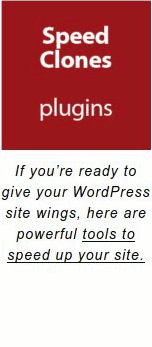“CloudFlare has released a new privacy-focused DNS service that runs on IP 1.1.1.1. They supposedly rotate logs every 24 hours and don’t store anything long-term. Seems cool, but I wish it did security filtering as well.” Link
This 1.1.1.1 Link told us who the real benefactors are: 1.1.1.1 is a partnership between Cloudflare and APNIC. The speed project is at a research phase. Just like Google AMP has been for years. Both are ideas or concepts under test. 1.1.1.1 DNS services launched April 1, 2018.
APNIC is the Regional Internet Registry administering IP addresses for the Asia Pacific.
Many think PagePipe is technocratic. That’s anyone who thinks technology will save the future world. That’s a bad assumption. Ironically, we’re safety-seeking, risk-adverse late adopters. Or even laggards – when it comes to technology changes. That’s because “new” often means “buggy” – or worse a ticking time bomb. But our attention is now on this method.
What’s the downside of Cloudflare’s claims of reducing site speed by 54 milliseconds? No one knows yet. We’re optimistic skeptics. But we usually wait and see how things work for Guinea-pig innovators. We find it odd that Cloudflare brags about saving 54 milliseconds while at the same time boasting about how they converted the biggest chunk of early adopters to SSL certification. Using SSL/HTTPS slows down every site by 400 to 500 milliseconds. Speed hypocrisy!
Some international service providers are blocking 1.1.1.1. Why? That’s yet to be revealed. 1.1.1.1 doesn’t work in many countries because it’s blocked. What? Why would it be deliberately blocked? And in some cases, it’s not blocked but slowed down. Again, why? Odd mysteries to solve. 1.1.1.1 is plainly not a panacea … yet. Or maybe ever.
Cloudflare CDN publishes deceptive time-to-first-byte (TTFB) speed specifications. Because Cloudflare uses marketing weasel words, our level of trust is low.
Cloudflare is getting free PR and press. Proof of concept really lies in user testing. That’s where they’re at today. Testing on users. We wouldn’t adopt this technology. Our intuition says there will be revealed a hidden downside – or that this service makes little to no difference.
Cloudflare has low source credibility. They promote something for nothing often with a speed-gotcha embedded. From our experience and our clients, using Cloudlflare services increases site fragility.
Other elements have greater impact than Cloudflare 1.1.1.1 speed claims – like TTFB, SSL, heavy plugins, page builders, webfonts, email APIs, video, etc.
The 1.1.1.1 gain is the equivalent of disabling a related-posts widget plugin. Maybe.
1.1.1.1 is a distraction from speed fundamentals making a real performance difference.
They aren’t giving us real benefits yet in language understandable to normal website owners. They’re using GeekSpeak.
For example, if a site has 24 calls. How much difference does using a special DNS make in real-world speed results? 24 milliseconds? We doubt it.
Why not eliminate 200 milliseconds by getting rid of a plugin like Social Warfare and stop linking to Facebook?
CONCLUSION
This 1.1.1.1 DNS trick is misguiding site owners from true solutions: discipline, Pareto-based measurement, and value analysis of website components.
REFERENCE LINKS:
https://pagepipe.com/cloudflare-doesnt-guarantee-consistent-load-times/
https://gizmodo.com/cloudbleed-is-a-problem-but-it-gets-worse-1792721147
https://gizmodo.com/everything-you-need-to-know-about-cloudbleed-the-lates-1792710616
Godspeed-
![]()
Steve Teare
performance engineer
February 2025
PagePipe Site Tuning Services for Speed
Instead of band-aid approaches, we drill down to the root cause of your slow site. This is origin optimization. Also known as site tuning. To do this, we analyze site components:
- Hosting
- Theme
- Plugins
- Scripts and third-party services.
- Images and media library.
- We minimize globally loading plugin effects.
Find out more details about Site Tuning – Get Speed!






